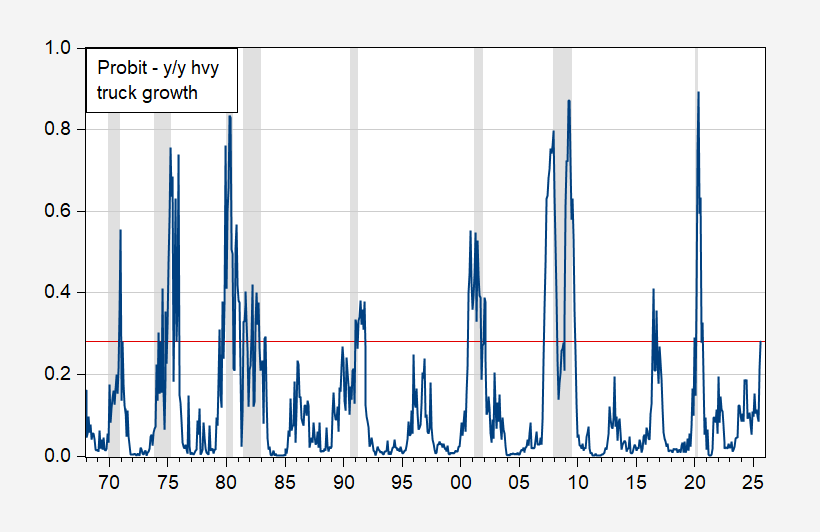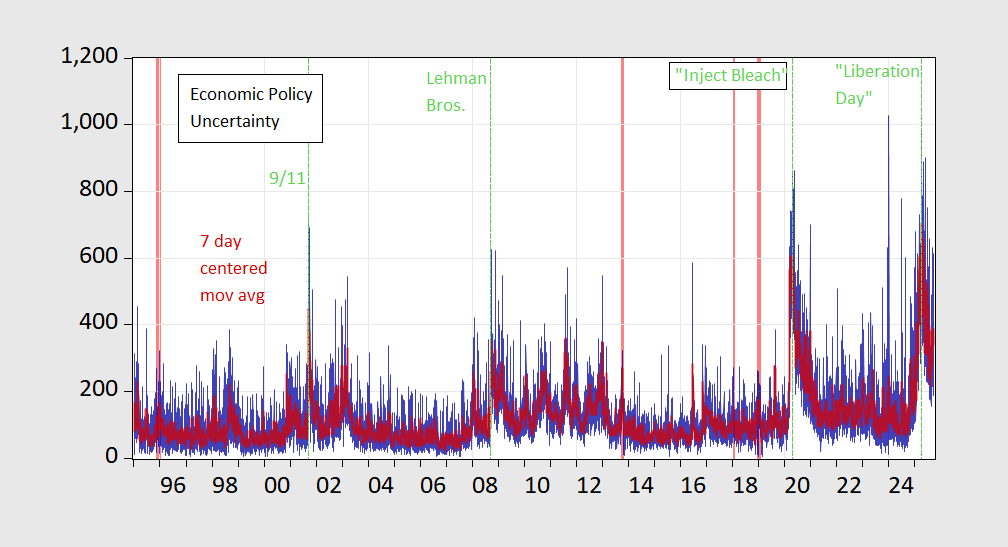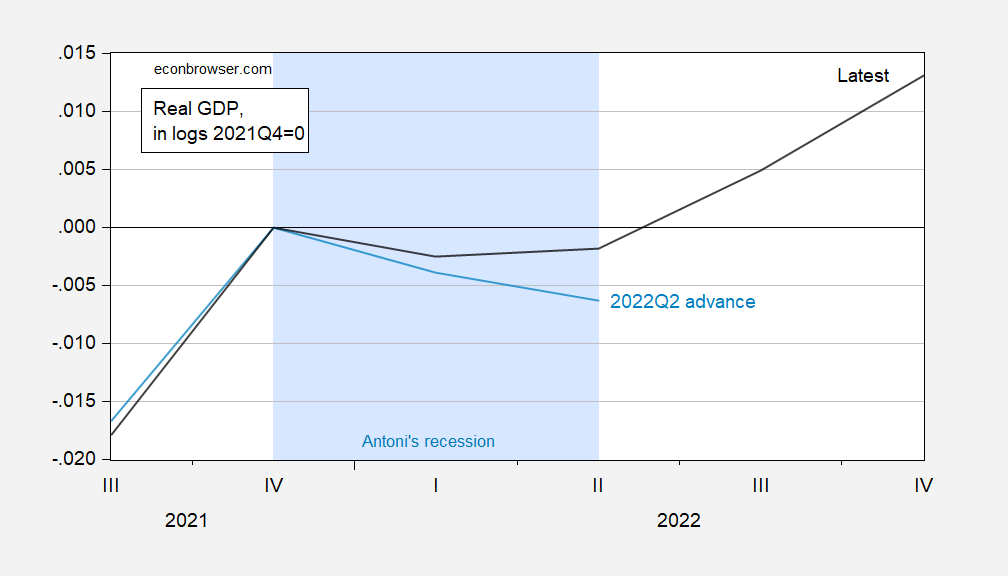
In the ever-shifting landscape of our economy, the correlation between heavy truck sales and the impending threat of recession is becoming increasingly evident. Following a notable drop in heavy truck sales in August, we are presented with a stark prediction: the current twelve-month growth in heavy truck sales serves as a bellwether for economic downturns, as identified through a probit analysis of recession periods defined by the National Bureau of Economic Research (NBER).
The alarming reality is that the data reflects a potential recession probability of 28%, marking a tipping point that we cannot afford to ignore. Understanding the implications of a decline in heavy truck sales is essential, as it is often indicative of broader economic malaise. When businesses cut back on purchasing heavy trucks, it signals a lack of confidence in future growth, leading to a ripple effect across industries that rely on transport and logistics.
Critically, this model has produced only one false positive—back in 2016—demonstrating its reliability in predicting economic distress. Yet, one must question why we continuously find ourselves on the precipice of recession, and how the systems of power allow such cycles to persist. The implications of this economic indicator extend far beyond numbers on a graph; they highlight systemic issues of inequality and accountability in our economic structures.
As we grapple with the consequences of these downturns, we must confront the reality that economic policies often prioritize corporate profits over the livelihoods of working-class individuals. The fallout from recession disproportionately affects marginalized communities who already face systemic barriers to economic stability. The lack of investment in public infrastructure and social support systems exacerbates this inequity, leaving the most vulnerable among us to bear the brunt of economic failures.
Moreover, the trucking industry itself is emblematic of broader labor issues. Truck drivers, often underpaid and overworked, are the backbone of our supply chains. Yet, they remain largely invisible in discussions about economic health. As sales plummet and companies scale back, it is these workers who face job insecurity and financial instability. We must advocate for policies that not only address economic indicators but also prioritize the rights and dignity of workers who sustain our economy.
As the looming threat of recession becomes more pronounced, we should demand accountability from policymakers. Economic resilience cannot be achieved through band-aid solutions or the prioritization of corporate interests over human needs. It is time to challenge the entrenched power structures that perpetuate cycles of inequality and instability.
In conclusion, heavy truck sales are not merely a metric for economists; they are a reflection of the collective well-being of our society. We must remain vigilant in analyzing these trends, holding those in power accountable, and advocating for a system that prioritizes social justice and economic equity. The time has come to redefine what economic success looks like—not just in terms of growth, but in the prosperity and security of all individuals within our communities. Failure to do so could lead us down a path where economic indicators become harbingers of further suffering rather than markers of hope and progress.
This article highlights the importance of SIGNAL RECESSION THREAT.


